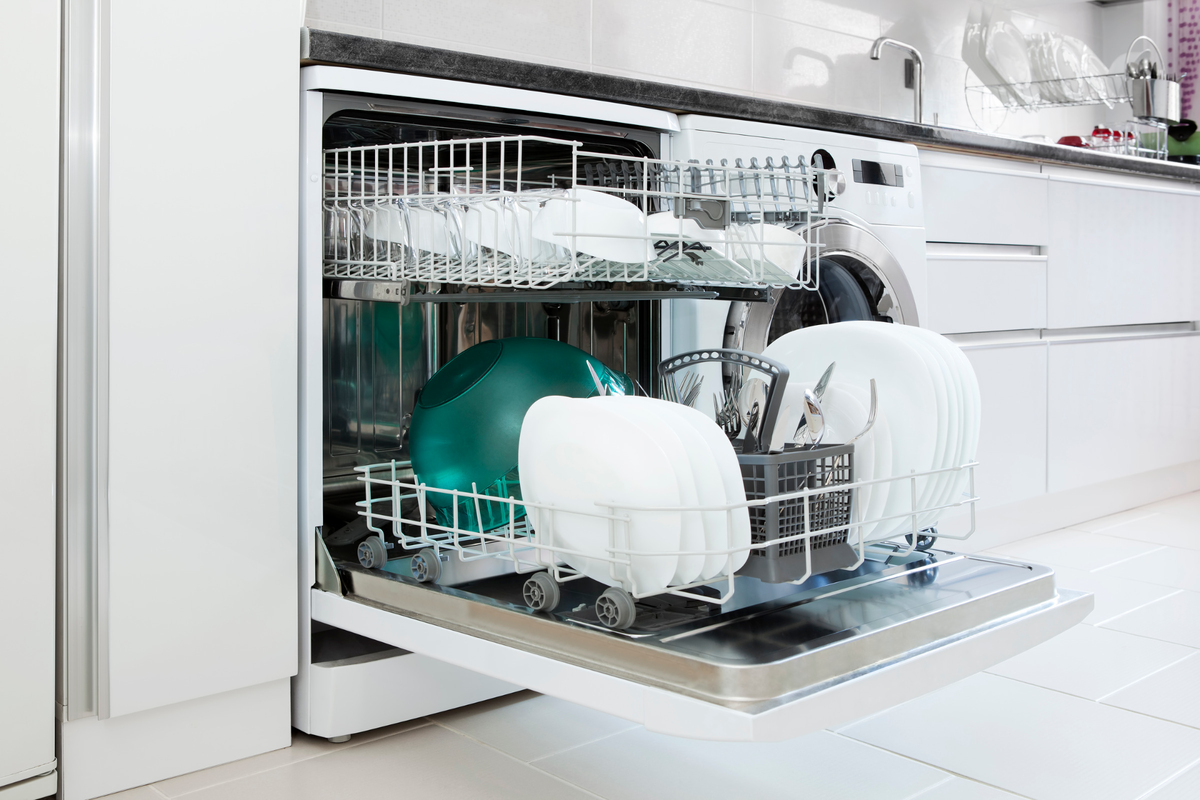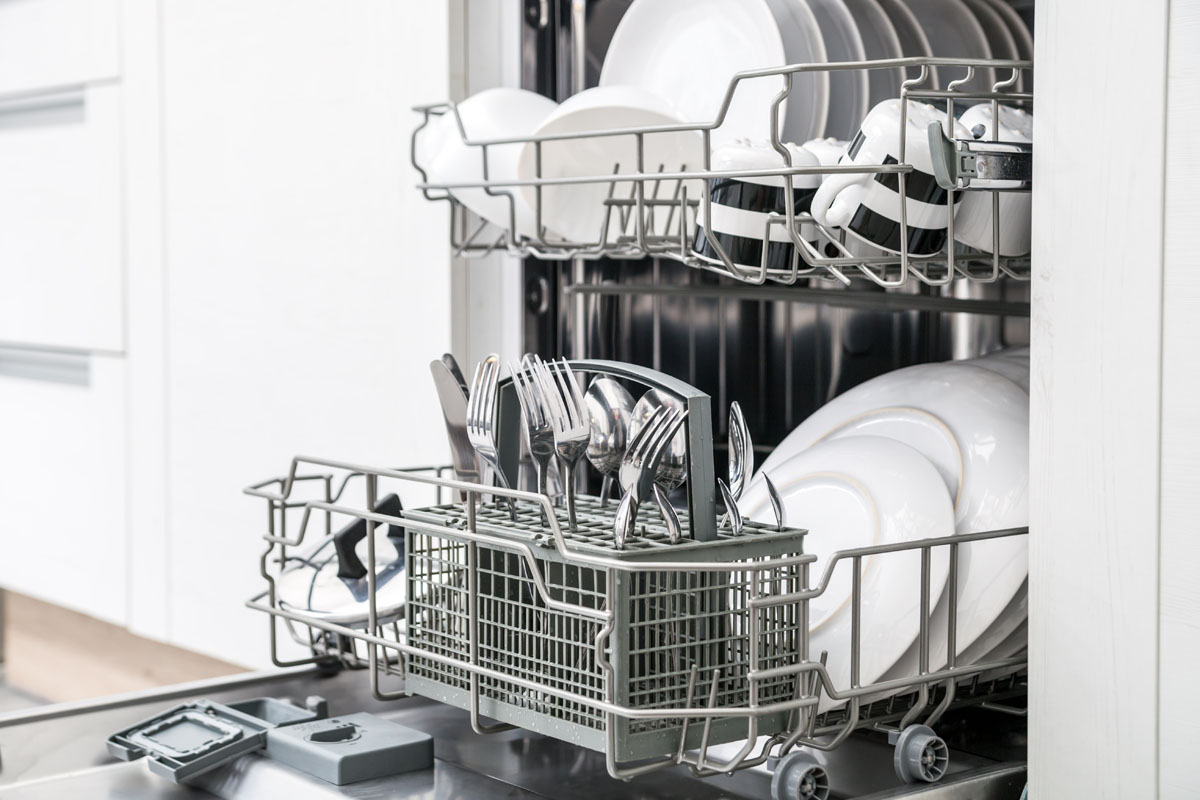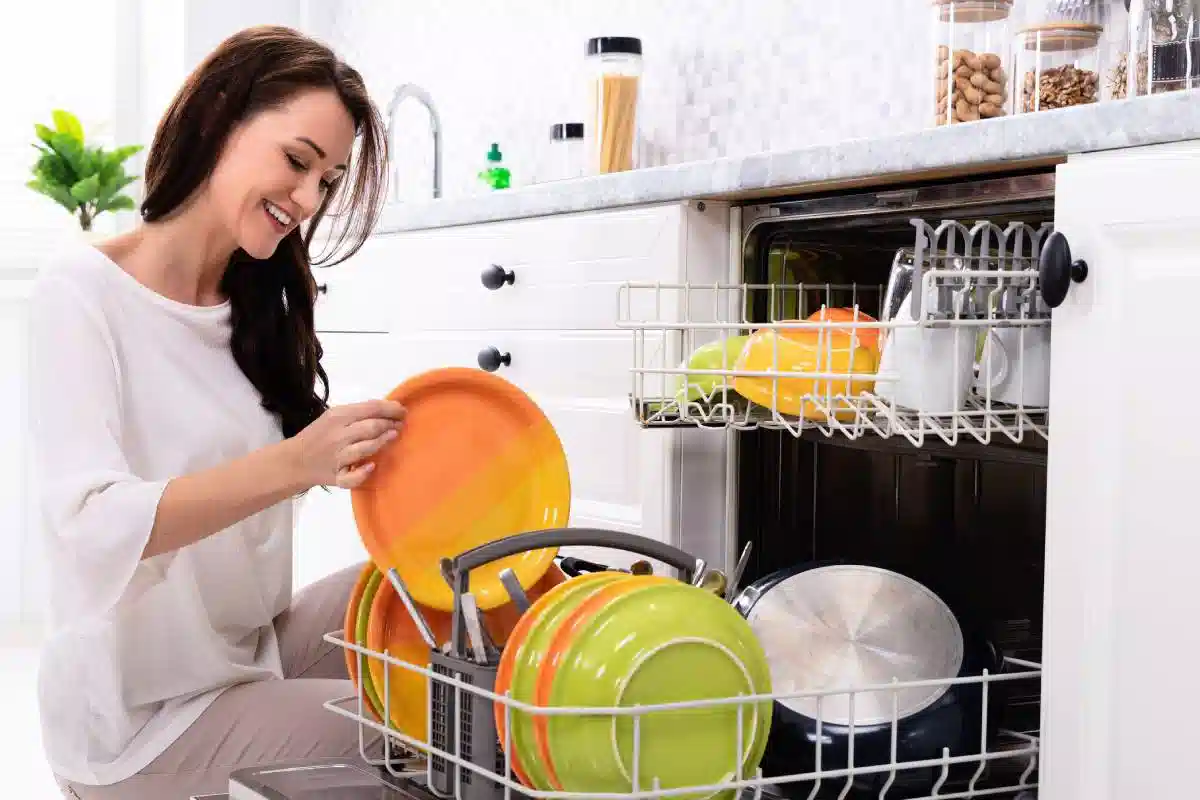Overfilling the dishwasher, using too much detergent or picking the upper compartment first are some of the most common mistakes
The main function of the electrical appliances we have at home is to help us with daily tasks and make our lives easier. One of the most common is the dishwasher and, despite not being among the most essential, once you have one you can’t and don’t want to do without it. Strange as it may seem, the dishwasher will also help us save water and electricity.
It is a very convenient appliance because it avoids many steps when washing and drying dishes. It is also easy to use and quite fast; in just a few minutes we will have all the kitchenware clean and ready to use again.
The most frequent mistakes

It arrived in the 70s in Spanish homes and it did so to stay. Little by little its use has become more popular and, despite having been present in many homes for decades, we still make some mistakes when using it. Among the most common are:
1 – Not removing food scraps
Larger or more stuck-on pieces of food should be removed with a damp sponge or napkin so that they do not block the drain or the dishwasher sprinklers.
2 – Rinsing the dishes
Do not rinse the dishes and, even less, rub them with a scouring pad and soap before putting them in the dishwasher.The detergent needs dirt to clean because otherwise its enzymes will be much less effective and will clean worse.
3 – Using too much detergent
Most dishwashers have a compartment for placing the detergent and the dose of detergent to be used is marked on it. Putting in more than the recommended amount will not make the dishes cleaner, but the undissolved remains of the product will accumulate in the machine and generate a bad smell.
4 – Putting in delicate dishes
You should avoid putting in objects such as glasses, hand-painted dishes, plates with metallic decorations, delicate plastic, wooden, cast iron or brass containers that could be damaged by high temperatures.
5 – Dishwasher too full
It is advisable to use the full load, but always respecting the spaces and not overlapping objects that could collide with each other or make it difficult to clean them or other utensils. A half load means a waste of water, electricity and detergent, so it is worth waiting to run the dishwasher until it is full.

6- Misuse of space
Large objects such as pots and pans should be placed at the bottom of the dishwasher, at the back or on the sides, and never at the top, as they could block the upper spray arm or prevent water from reaching all the utensils equally. The top section is intended for glasses, bowls, cups, Tupperware and cutlery for serving. The smallest cutlery should be placed in the basket, knives with the handle facing up, forks with the handle facing down and spoons interleaved, some facing up and others facing down, and separated so that they do not cover other cutlery.
7 – Pick up the upper compartment first
At the end of the drying cycle, cups and bowls may accumulate water at the base and if we do not realize it when we go to pick them up, we will spill all the liquid on the objects below.
8 – Do not close the detergent door
The detergent should be released at the right time in the wash cycle. If it spills, it will fall to the bottom of the appliance and go down the drain without touching the dishes, leaving them dirty. If you place the tablet outside the compartment, it will dissolve in the prewash and will not clean either.
9 – Using hand-washing soap
This type of detergent makes a lot of foam, so avoid it if you don’t want your kitchen to turn into a real foam party.
10 – Believing that it is better to wash by hand
The dishwasher uses less energy and water (between 10 and 16 litres per wash) than washing kitchen utensils by hand. Furthermore, this appliance leaves the dishes more clean and disinfected due to the high temperatures reached during the washing and drying cycles.
Avoiding all these mistakes when using the dishwasher, together with proper maintenance, will allow us to save water, money and, above all, time, with an appliance whose invaluable help you will not fully appreciate until the moment it breaks down.








